IELTS
International English Language Testing System
Description:
IELTS stands for International English Language Testing System. It is basically an English test for testing the proficiency of the language in an individual. The test system is jointly managed by the British Council, IDP education limited and University of Cambridge ESOL Examinations and more than 1 million candidates are taking the exam all over the world.
Candidates immigrating to countries like Australia, Canada, New Zealand, UK and other European countries require High IELTS score of 7+ and every candidate needs individual attention and that’s assured @ LEEDZ.
We Provide Facilities:
- British Council trained faculties
- Weekly Mock Test
- Group Discussions
- One to One Interview Sessions
- Vocabulary Building
- Exclusive material with 36 tests
ACADEMIC
For people who plan to continue their higher education by enrolling in universities in countries like US, UK, Australia, Canada, New Zealand etc.The academic institutions in these countries consider the IELTS score as a criteria for the admission process.
GENERAL TRAINING
Mostly for immigration purposes in countries like Australia, NewZealand, Canada, etc... It may also be used for work experience or training in a non academic field.
The duration of the IELTS examination is 2 hours and 45 minutes and it is divided into four sub categories.
- Listening (40 minutes)
- Reading(60 minutes)
- Writing (60 minutes)
- Speaking (10-15 minutes)
Our Teaching Methodology
Beginner's Batch
We introduce you to the nuances of English Language. We provide you with the basics of IELTS. After all studying IELTS hasn’t been your normal activities. In this horizon we are giving you a basic understanding about how the modules of each pattern shall be considered. Linguistic abilities in the time of speaking is monitored and given feedback accordingly. Group talk sessions are conducted which elevate one’s confidence and eliminate the fearness to face public. Further in writing every type of questions is well discussed, given specified time to incorporate one’s ideas in line to the task strategy and of-course finally individual correction done. Likewise, reading and listening is practised with pattern wise clarity towards students.
Intermediate Batch
In the intermediate batch, IELTS list sessions are conducted by the certified trainers. The students are provided with IELTS list materials. They have individual speaking sessions in the class. The intermediate class commences by giving listening list and after the session, the reading session is also conducted followed by writing session. We have strict monitoring in place to adhere to all standards of IELTS list modules. We will check whether the candidate is able to complete the exam within the specified time limit. Individual correction and proper explanations is provided at regular intervals.
Exam Batch
In the case of Exam Batch, we are focusing only on mock test series everyday. Individual correction are given from time to time. The student gets an opportunity to clear his/her doubts in writing modules. Each and every candidate also gets an opportunity to speak one on one with the trainer in the speaking session. Thus a student is moulded to face the IELTS exam with confidence and vigour.
IELTS Syllabus
The International English Language Testing System (IELTS) generally has two test formats- IELTS Academic and IELTS General Training. You can opt for any one of them depending upon your requirement or the university/ course you will be applying to. IELTS Academic is accepted by universities where you are applying for an undergraduate or postgraduate programme or by any professional organisation that asks for English language proficiency scores. On the other hand, people opt for IELTS General Training when they plan on relocating to another country or move to a new country on a work-visa or for work-related training. Here is the IELTS exam syllabus covering writing, reading, listening and speaking-
Reading
The reading module consists of three texts of general interest dealing with issues which are appropriate for candidates entering postgraduate or undergraduate courses. Both reading modules consist of three passages or sections with forty questions.
Question types include multiple choice, sentence or summary completion, identifying data for short-answer questions, matching lists or phrases and identifying writers' views/attitudes.
No. of questions: About 40
Total time: 60 minutes
IELTS Exam Reading Pattern
Academic
This includes three long paragraphs which can be either descriptive, factual or analytical. These paragraphs are basically excerpts taken from newspapers, research works, journals, books, or even magazine. Targeting a non-specialist audience, the texts are ideal for testing higher education aspirants or for professionals seeking work abroad.
General Training
Similar to the academic format, here the excerpts can be passages from advertisements, company guidelines, brochures, and so on. This is relatively easier than the academic format as the selected text are generally something that one encounters on a day-to-day basis.
Writing
Responses to the academic writing module are short essays or general reports, addressed to an educated non-specialist audience. There are two compulsory tasks.
Task 1 (at least 150 words), and candidates are asked to look at a diagram, table or data and to present the information in their own words.
Task 2 (at least 250 words), and candidates are presented with a point of view, argument or problem and asked to provide general factual information, present a solution, justify an opinion, evaluate ideas and evidence etc.
Total no. of questions: 2 (1 for each task )
Total time: 60 minutes
IELTS Exam Writing Pattern
Academic
- For the first task, candidate will be handed a paper which would contain either a diagram, table or graph. They will be required to recapitulate and define the given data in their own words. candidates may be asked to explain a certain data entry, process the given information or a flowchart to logically arrive at a conclusion.
- For the second task, candidate need to write an essay as a response to their deduction from the given data and support their argument with relevant examples, through the given data. Please note that the writing style should be strictly formal.
It includes two tasks wherein the topics are of general interest and relatable for candidates applying for an undergraduate or postgraduate programme.
General Training
It also includes two tasks, yet, it is much easier than that of the academic format.
- Based on the above viewpoint, you will be asked to draft an essay on the same. The arguments and opinions mentioned here should be supported by relevant instances and the writing style can be a bit personal.
- You will be asked to write a letter as per the given situation. The letter can be formal, semi-formal or personal depending upon the situation presented. You will be asked to explain, request for something or support your argument to a certain authority.
Listening
The Listening module is divided into four sections. The first two conversations are concerned with social needs, while the last two are concerned with situations more closely related to education. They will all be of approximately three minutes duration. The conversations could be both monologues and dialogues. These conversations can be heard only once. A variety of question types are asked, like multiple choice, short-answer questions, notes completion, sentence completion, labelling a diagram etc.
Total no. of questions: 40+
Total time: 45 minutes ( approximately) + 10 minutes to transfer the answers to an answersheet
Speaking
The Speaking section is like a structured interview with an emphasis on general speaking skills. It assesses whether candidates have the required knowledge and skills to communicate effectively with native speakers of English.
Total no. of questions: 3 parts - Personal Interview, Little Speech and a Discussion
Total time: 11 to 14 minutes
IELTS Speaking Pattern
The speaking part can be divided into three parts:
- For the first five minutes, you will be asked some mundane questions about yourself such as family, home, studies, your hobbies and interests, and so on.
- Next, the examiner will hand you a flash card that would contain a certain topic. You will be given a minute or two to familiarize yourself with the topic as you would need to speak on that topic for about two minutes. Post your speech, the examiner might ask a few questions based on your understanding of the topic.
- Deeper questions and abstract discussion would take place based on the given topic and your speech. You will get the opportunity to explore your given topic and delve into deeper issues. You can expect this part to last for five-six minutes.
How to Register
IELTS exams can be registered through IDP ( international devolupment program) as well as through British Council
Option A - Register online and pay the test fee by Credit Card
You must have a valid credit card with you to avail the online booking facility.
Procedure
- Log on to www.ieltsidpindia.com
- Select the option "Register for IELTS"
- Select your test date and test city (you will see the seat availability status)
- Complete the on-line application form
- Pay the test fee by credit card (Master / Visa)
- Get instant seat booking and acknowledgement
- Log on to www.ieltsidpindia.com
- Select the option "Register for IELTS"
- Select your test date and test city (you will see the seat availability status)
- Complete the on-line application form
- Pay the test fee by credit card (Master / Visa)
- Get instant seat booking and acknowledgement
Important You MUST courier the following to IDP head office
IDP Education India Pvt.Ltd.6th Floor, Plot No.32, Global Business Square,
Sector 44, Gurgaon-122003 (Haryana),India.
P:+91-124-4445999
and also bring the following along with you on the day of the test (both speaking and listening, reading, writing test)
- Photocopy of your Passport (first and last page), AND any observation pages. Failing which you will NOT be allowed to sit the test.
- Once your registration is complete you will see a confirmation on your computer screen (you must print and bring this on the day of the test). A copy of the confirmation will also be sent in hard copy or on the e-mail address provided when you completed the application form.
Option B - Register in Person at IDP branch or Input Node
Procedure
Walk into any IDP branch/head offices or the nearest Input Node and use any of the following methods to register:
Method - I- Register online using the computer at the office and make payment of test fee by Credit card, get immediate confirmation of your seat (this is identical to online registration)
- Hand over Photocopy of your Passport (first and last page) AND any observation pages.
- Hand over the Terms & Conditions document duly signed
- Take the instant acknowledgement letter confirming your seat in the test.
- Take an application form and complete the same
- Sign the terms and conditions sheet attached to the application form.
- Attach Photocopy of your Passport (first and last page) AND any observation pages
- Pay the test fee either by Credit card or Debit card / ATM card, or by Demand Draft (demand draft must be drawn in favour of "IDP EDUCATION INDIA PRIVATE LIMITED, Payable at New Delhi") and should be made from any bank listed in the approved banks list in the Terms & Conditions document
- by depositing cash in ICICI bank branch via a customized ICICI deposit slip which can be either downloaded from IDP website or taken from IDP branch office or from any input node. The original customer copy of the customized ICICI deposit slip needs to be handed over to IDP branch office or the input node as a payment proof.
- Request the IDP branch staff or input node to enter your application form in the online registration system immediately and give you the acknowledgement of your booking and a tentative seat reservation, thereby ensuring a seat for yourself. Please note that your confirmation will be subject to the realization of the Bank draft (if you have paid the fee by bank draft)
Option C - Register by Courier and pay test fee by Demand Draft or ICICI deposit/Allahabad deposit slip
Procedure
Download the application form from , https://www.ieltsidpindia.com . Alternately, collect the application form, from the nearest IDP branch office or Input Node.
- Complete the application form
- Sign the application form and the Test terms and conditions sheet attached to the form
- Attach Photocopy of your Passport (first and last page) AND any observation pages
- Attach the Demand Draft for the test fee (demand draft must be drawn in favour of "IDP EDUCATION INDIA PRIVATE LIMITED, Payable at New Delhi" and drawn on any bank listed in the approved banks list in the Terms & Conditions document) or attach the original customer copy of the ICICI deposit slip depositing cash in nearest ICICI bank branch
- Send the completed application form with all attachments and the test fee to
Limited, 6th Floor, Plot No.32, Global Business Square
SECTOR44, GURGAON-122003 (Haryana),India.
P:+91-124-4445999
The application will be processed upon receipt and the seat allotment for your selected date will be subject to availability
IELTS Test Fee 12,650 as applicable (inclusive of all taxes)
Flexible Timing
IELTS Scoring in detail
The IELTS Academic and General Training test results are reported using the same nine-band scale
The Test Report Form provides your Overall Band Score and band scores for each of the four components: Listening, Reading, Writing and Speaking.
Overall Band Score
The Overall Band Score is the average of the four component scores, rounded to the nearest whole or half band. The component scores are weighted equally.
Some Examples:
| Listening | Reading | Writing | Speaking | Average of four components | Band Score | |
|---|---|---|---|---|---|---|
| Test taker A | 6.5 | 6.5 | 5 | 7 | 6.25 | 6.5 |
| Test taker B | 4.0 | 3.5 | 4.0 | 4.0 | 3.875 | 4.0 |
| Test taker C | 6.5 | 6.5 | 5.5 | 6.0 | 6.125 | 6.0 |
If the average of the four components ends in .25, the Overall Band Score is rounded up to the next half band, and if it ends in .75, the Overall Band Score is rounded up to the next whole band.
Component Band Scores
Listening
The IELTS Listening test contains 40 questions. Each correct answer is awarded one mark. Scores out of 40 are converted to the IELTS nine-band scale. Scores are reported in whole and half bands.
Reading
The IELTS Reading test contains 40 questions. Each correct answer is awarded one mark. Scores out of 40 are converted to the IELTS nine-band scale. Scores are reported in whole and half bands.
The Academic and General Training Reading tests are graded on the same scale. The distinction between the two tests is one of genre or text type. However, Academic Reading tests may contain texts which feature more difficult vocabulary or greater complexity of style. It is usual that a greater number of questions must be answered correctly on a General Training Reading test to secure a given band score.
The tables below indicate the average number of marks required to achieve a particular band score in Listening, Academic Reading and General Training Reading.
Listening
| Band Score | Raw score out of 40 |
|---|---|
| 5 | 16 |
| 6 | 23 |
| 7 | 30 |
| 8 | 35 |
Academic Reading
| Band Score | Raw score out of 40 |
|---|---|
| 5 | 15 |
| 6 | 23 |
| 7 | 30 |
| 8 | 35 |
General Training Reading
| Band Score | Raw score out of 10 |
|---|---|
| 4 | 15 |
| 5 | 23 |
| 6 | 30 |
| 7 | 34 |
| 8 | 38 |
Writing
Examiners use assessment criteria to award a band score for each of the four criteria:
- Task Achievement (for Task 1), Task Response (for Task 2)
- Coherence and Cohesion
- Lexical Resource
- Grammatical Range and Accuracy
The criteria are weighted equally and the score on the task is the average.
Speaking
Examiners use assessment criteria to award a band score for each of the four criteria:
- Fluency and Coherence
- Lexical Resource
- Grammatical Range and Accuracy
- Pronunciation
The criteria are weighted equally and the Speaking band score is the average.
Recent Winners
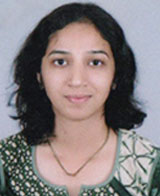
Ragendu - 8.5

Clince - 8
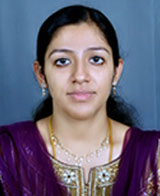
Sajini - 8

Varun - 8
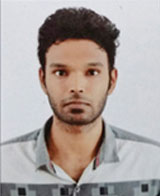
Akshai - 8

Rohan - 7

Sruthin - 7.5

Joseph - 7

Amjad - 7

Nelta - 7

Mashood - 7
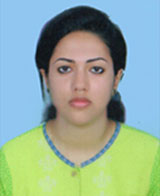
Jibimol - 7.5

Hephzibah - 7.5

Sidharth - 8

Shehin - 7
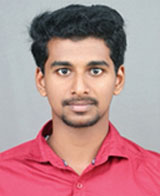
Rahul - 8

Simi - 7
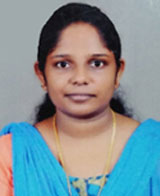
Mariya - 7

Rohit - 8

Anshiq - 7
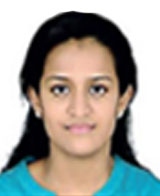
Aswathy - 7
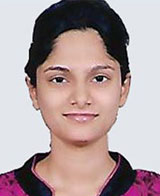
Hannah - 7

Harishankar - 7

Sarath - 7
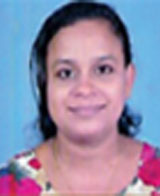
Soumya - 7

Soumya - 7
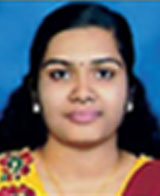
Steffy - 7

Tony - 7

Sajith - 7

Rovin - 7
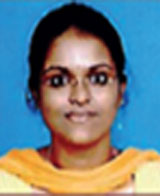
Revathy - 7

Ranjith - 7

Rajitha - 7

Paul - 7

Nimesh - 7
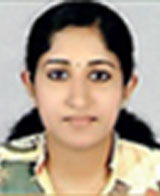
Mimi - 7

Milka - 7

Midhun - 7

Merlin - 7.5

Meena - 7
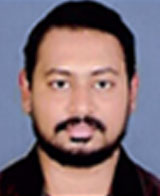
Mani - 7

Mahesh - 7

Linet - 7
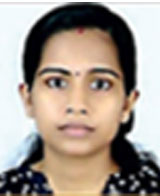
Lidiya - 7
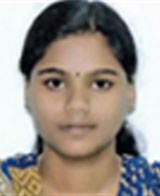
Leena - 7
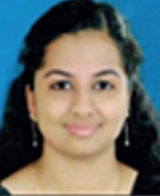
Krishna - 7

Leena - 7

Jeethma - 7

Leena - 7
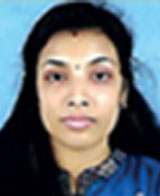
Agna - 7

Aiswarya - 7

Ancy - 7
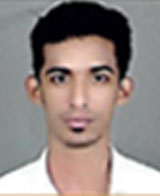
Ansen - 7

Aswathy - 7

Athira - 8
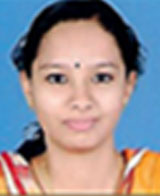
Aswathi - 7

Chippy - 7

Dibin - 7

Aswathi - 7

Hannah - 7